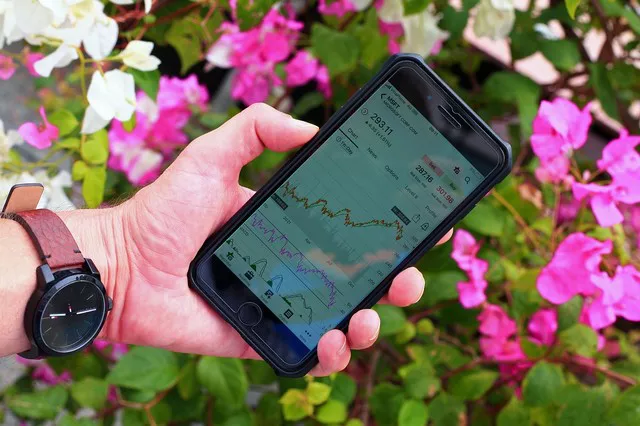COMEX gold futures are a key component of the global precious metals market, providing investors with a means to trade and hedge against price fluctuations in the price of gold. As one of the world’s leading futures exchanges, the COMEX (Commodity Exchange, Inc.) offers a platform for the trading of gold futures contracts, which are standardized agreements to buy or sell a specified quantity of gold at a predetermined price on a future date. In this article, we will explore the intricacies of COMEX gold futures, including their features, trading mechanics, market dynamics, and their significance in the broader financial landscape.
Features of COMEX Gold Futures
COMEX gold futures contracts are standardized agreements traded on the COMEX exchange, with each contract representing a specified quantity of gold. The most actively traded contract is the COMEX gold futures contract, which represents 100 troy ounces of 24-karat gold. These contracts are traded electronically on the CME Globex platform and are subject to the rules and regulations of the COMEX exchange.
Trading Mechanics
Trading COMEX gold futures involves buying or selling contracts with the expectation of profiting from changes in the price of gold. Traders can take long positions, where they agree to buy gold futures contracts at a predetermined price in anticipation of price appreciation, or short positions, where they agree to sell gold futures contracts at a predetermined price in anticipation of price depreciation. Trading hours for COMEX gold futures typically extend from Sunday evening to Friday afternoon, allowing traders to access the market during major trading sessions around the world.
Market Dynamics
The price of COMEX gold futures is influenced by various factors, including supply and demand dynamics, geopolitical events, economic indicators, and market sentiment. Gold is often regarded as a safe-haven asset and a store of value during times of economic uncertainty and geopolitical instability, leading to increased demand and upward pressure on prices. Conversely, improving economic conditions and rising interest rates may dampen demand for gold futures and lead to downward pressure on prices. Traders and investors closely monitor these factors to gauge market sentiment and anticipate price movements in COMEX gold futures.
Liquidity and Volatility
COMEX gold futures are highly liquid instruments, with significant trading volume and open interest, making them attractive to traders and investors seeking to execute large orders with minimal slippage. The liquidity of gold futures allows for tight bid-ask spreads and efficient price discovery, enabling traders to enter and exit positions with ease. However, gold futures can also exhibit volatility, with prices subject to rapid fluctuations in response to changes in market conditions, news events, and geopolitical developments. Traders should exercise caution and implement risk management strategies to navigate the inherent volatility of gold futures markets effectively.
Role in Risk Management
COMEX gold futures play a crucial role in risk management for market participants, including miners, refiners, jewelers, manufacturers, investors, and speculators. Gold futures contracts provide a means for these stakeholders to hedge against adverse price movements in the price of gold, thereby protecting their financial interests and mitigating exposure to market risk. For example, gold producers may use futures contracts to lock in prices for future production, while jewelry manufacturers may use futures contracts to secure prices for raw materials. Similarly, investors and speculators may use gold futures contracts to speculate on price movements or diversify their investment portfolios.
Relationship with Spot Market
COMEX gold futures are closely linked to the spot market for physical gold, with prices in the futures market influenced by prices in the spot market and vice versa. The relationship between futures prices and spot prices is known as the basis, which reflects the cost of carrying gold from the present to the future, including storage costs, financing costs, and opportunity costs. Arbitrageurs and market participants monitor the basis to identify opportunities for profit by exploiting price differentials between the futures and spot markets. The convergence of futures prices and spot prices at expiration ensures the efficient functioning of the gold futures market.
Regulatory Framework
The trading of COMEX gold futures is regulated by the Commodity Futures Trading Commission (CFTC), a federal agency responsible for overseeing futures and options markets in the United States. The CFTC regulates the trading, clearing, and settlement of futures contracts to ensure market integrity, transparency, and investor protection. Additionally, the exchange operator, CME Group, implements rules and procedures to maintain orderly trading and prevent market manipulation, fraud, and abuse. Market participants are required to adhere to strict compliance standards and reporting requirements to uphold the integrity of the gold futures market.
Conclusion
In conclusion, COMEX gold futures play a significant role in the global precious metals market, providing traders and investors with a regulated platform to trade and hedge against price fluctuations in the price of gold. With their standardized contracts, transparent trading mechanisms, and high liquidity, COMEX gold futures serve as an essential tool for risk management, price discovery, and speculation in the gold market. By understanding the features, trading mechanics, market dynamics, and regulatory framework of COMEX gold futures, market participants can navigate the complexities of the gold futures market and capitalize on opportunities to achieve their financial objectives.


